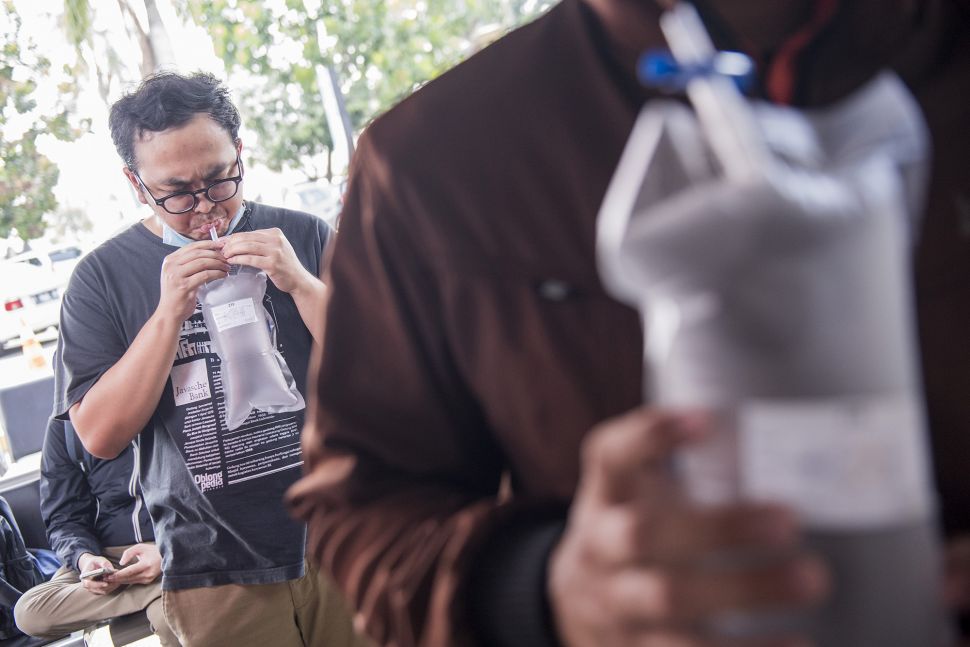The implementation of universal health coverage scheme in Indonesia called Jaminan Kesehatan Nasional (JKN), raises people’s hope for better access to health service. However, after its four years implementation, the Social Security Agency for Health (Badan Penyelenggara Jaminan Sosial-Kesehatan) has had to deal with the constant budget problem.
BPJS-K has to spend very high bills to cover health services provided to people. Recently, BPJS-K, as well as the Ministry of Health, often presents that eight ‘catastrophic illness’, i.e., cardiovascular, kidney failure, cancer, stroke, cirrhosis, thalassemia, leukemia, and hemophilia, should be responsible for the substantial costs. Therefore, cutting the spending on these diseases is assumed to help their financial situation.
With the high expenditure, BPJS-K has had to face increasing loss for years. In 2014, the loss was IDR 3.3 trillion, rose to 5.7 T in 2015, 9.7 T in 2016, and is expected to more than 10 T at the end of 2017.
BPJS-K argued that the claim ratio was higher than the pooled fund, but the solutions they proposed was illogical. Lately, in hearings meeting with DPR, the director of BPJS-K revealed that one of the promising strategies to deal with the loss should be implementing patient cost sharing for that ‘catastrophic illness’. Although BPJS-K rectified that statement and stressed that the plan had not been implemented yet, the proposed strategy evoked criticisms.
Unavoidable high costs
The loss has been apparent, and its yearly increase has been inevitable. That is the real situation on health service needs. It has indicated that the demand for health services is extraordinary and should not be denied. Even, it could be much higher than current utilities.
The current generic solution, regulated by the Law of BPJS, is old-fashioned. The government just wait until the end of fiscal year when the BPJS-K announces the loss. Yes, the central government will bear the loss, and it will secure the JKN. People will remain to have access to health care services. However, this policy is also confusing. With the continuous, increasing loss, the government should develop a breakthrough policy.
Instead of waiting for the loss, the central government must increase the national budget to contribute to poor people called ‘Penerima Bantuan Iuran’. Recent contribution paid by the government to BPJS-K is Rp 23,000 per person per month. It is much lower than actual calculation for sufficient contribution of Rp 36,000 per person per month.
The government could say that the fiscal space is narrow. But, for whom the government should stand? For its people! And, the access to health care services is a fundamental human right –clearly stated in the United Nations’ Universal Declaration of Human Rights 1948 and the 1966 International Covenant on Economic, Social and Cultural Rights.
Increasing contribution
We may not discuss how to expand population coverage. The BPJS-K shows limited innovation to solve the adversity to reach informal workers to become the member of national insurance. The government is also not likely to augment the poor people covered by national budget (APBN). However, the government can produce the strategy to increase the contribution budget.
If we run a simple simulation, with a current number of 92,211,728 poor people covered by central government and increasing contribution to Rp 30,000 per person per month, the government will provide additional contribution Rp 7,7 T per year. And, if this simulation includes 19 million poor people covered by the local government, the additional contribution will become Rp 9.4 T per years.

That is sufficient funding that can be provided in advance, instead of waiting for the loss.
Some may argue that the increasing contribution is unfair. Studies revealed that current utility of health services is dominated by those living in the non-poor household. The current concentration index is pro-poor and is unfavorable for poor people.
Huge homework
That is, precisely, another critical homework for the government. The increasing, but limited, the utility of health services by poor people indicates that the poor not only require free medical services but availability and broad access to health care services.
Most people in rural area, particularly in densely poor populated, are disadvantaged by their geographical area and lack of health care facilities around them. Free health services are helpful to reduce their spending for medication, but they remain facing other high costs. They may be, even, unable to reach health care facilities since they can not afford transportation and accommodation costs. This condition may also affect in increasing dropped out cases, complications, deterioration of health, or even further impoverishment.
The eight ‘catastrophic diseases’ are not only ‘catastrophic’ for the BPJS-K budget but ‘catastrophic’ for the patients and their families. Reducing the coverage for the eight diseases is an irresponsible manner of the State. We have to bounce back.
If BPJS-K wants to cut the spending, BPJS-K has to set precise, detail definition of the diseases that would be not fully covered. BPJS-K and the Ministry of Health should strengthen the Health Technology Assessment (HTA) unit to support decision making. The unit will provide scientific evidence which spending that is not cost-effective and should be either partly or fully removed from benefit package. The unit will also take a broad perspective into accounts on ethical, social, and economic aspects before deciding the impacts on a budget of covering or not covering specific costs of services.
These are not easy measures to develop. But, the government must show its leaning to people rights and needs. We have to be strict to the philosophy of achieving universal health coverage and do not produce contradictive measures.
Rotterdam, December 2017
*Ahmad Fuady
Lecturer and researcher in Faculty of Medicine, Universitas Indonesia. Currently, Fuady is pursuing his PhD at Erasmus University Medical Centre Rotterdam, the Netherlands.
Image source: https://kreditgogo.com/artikel/Asuransi-Kesehatan-dan-Jiwa/Mengenal-Lebih-Dekat-Asuransi-Kesehatan.html








